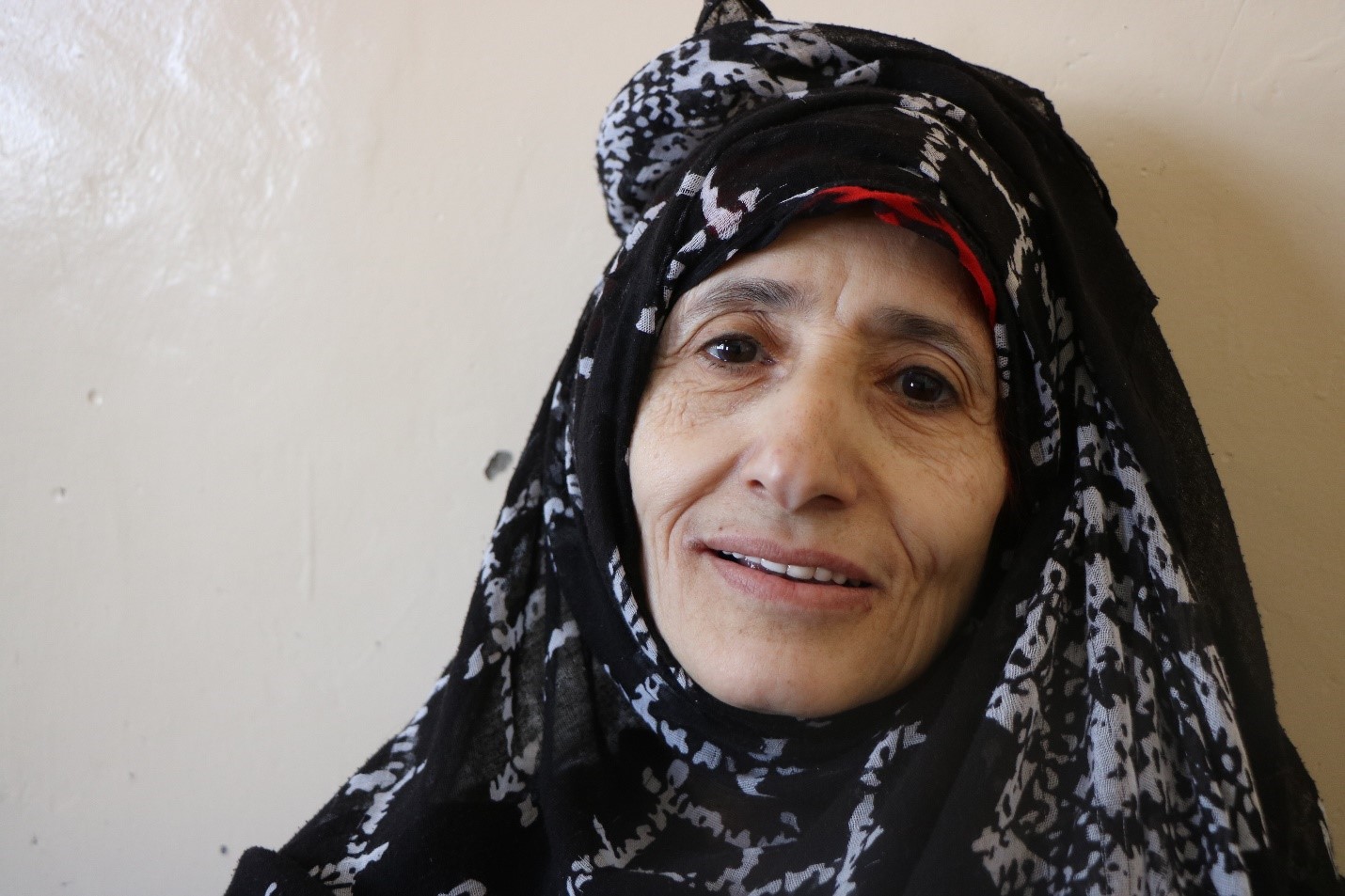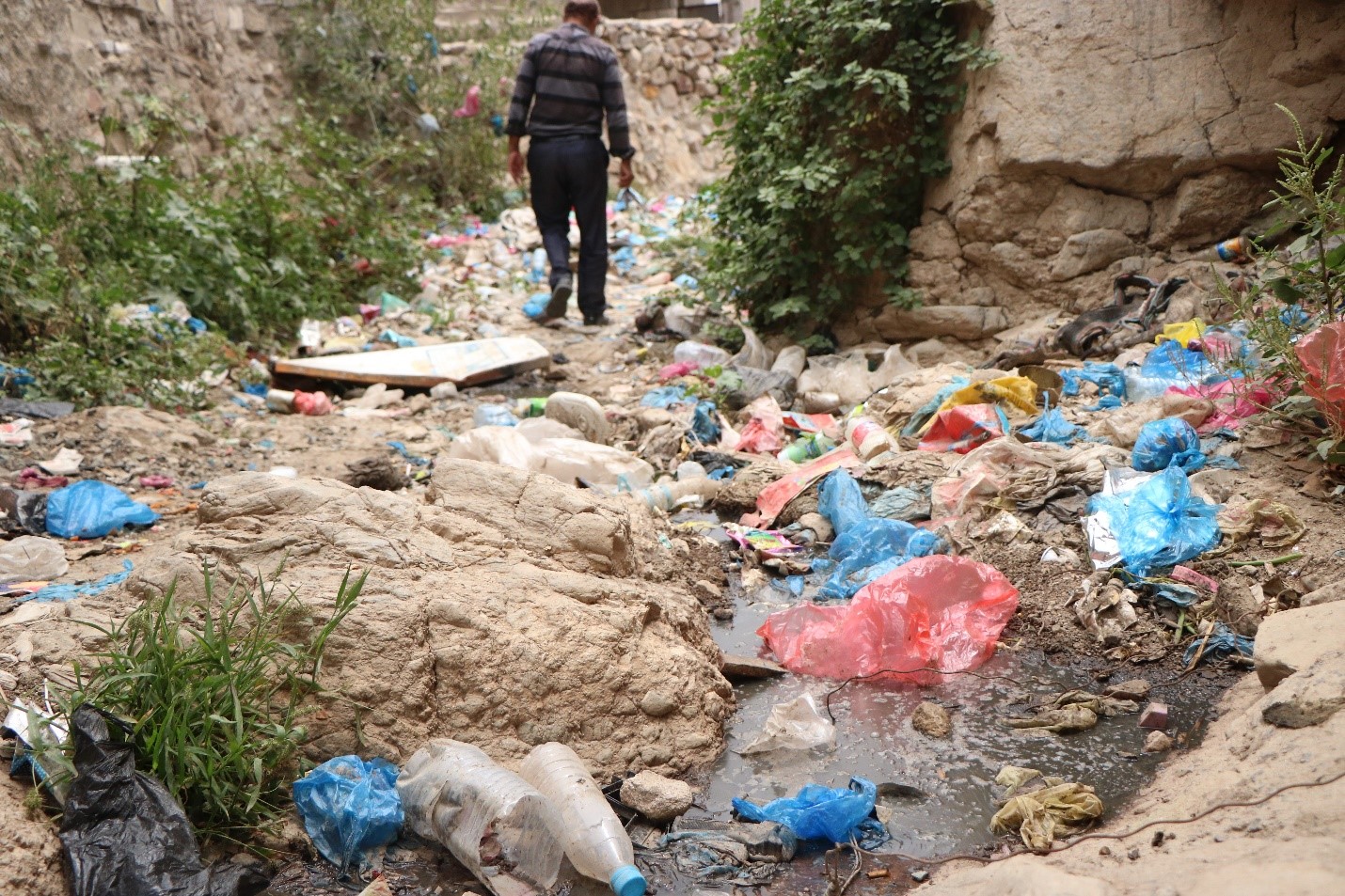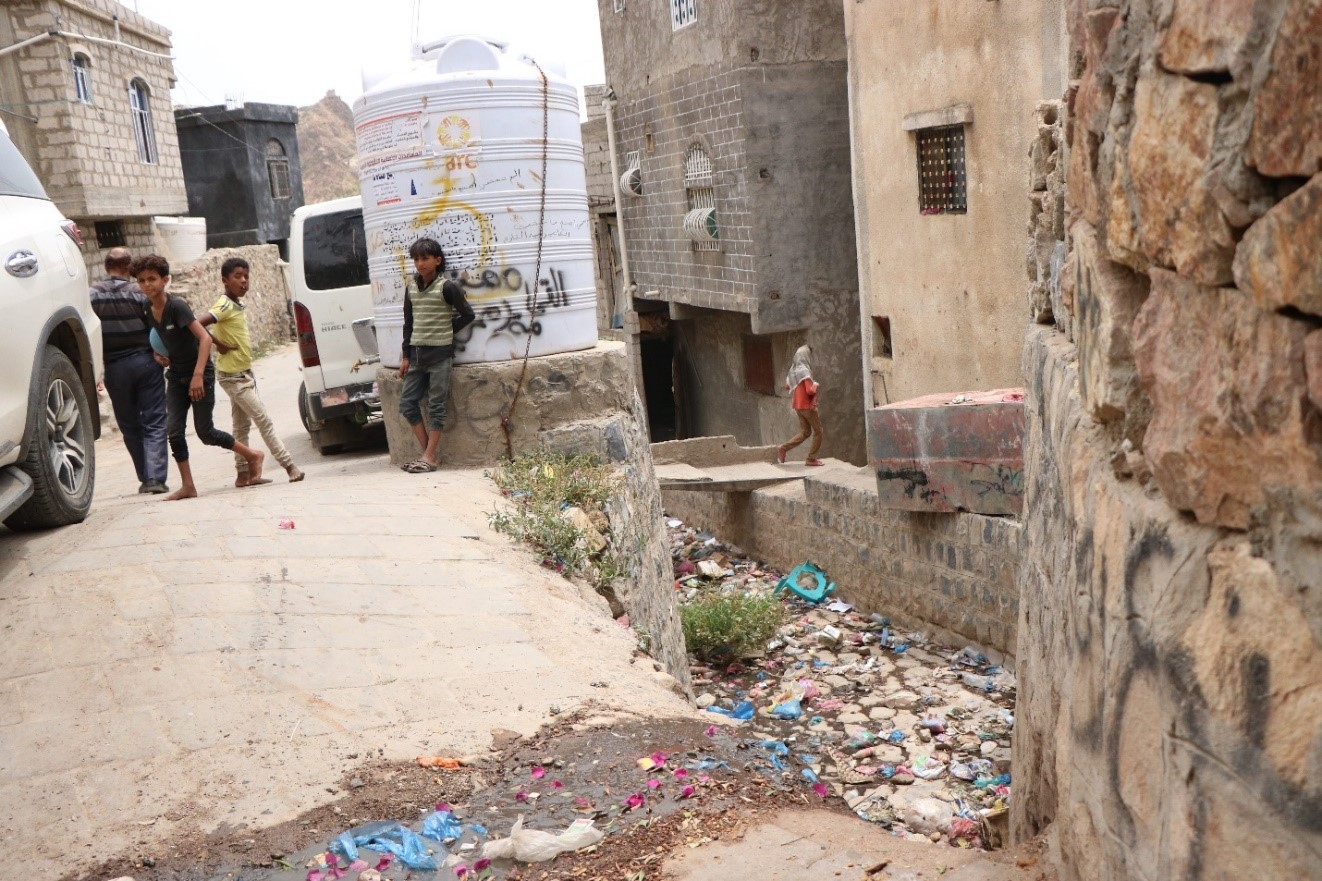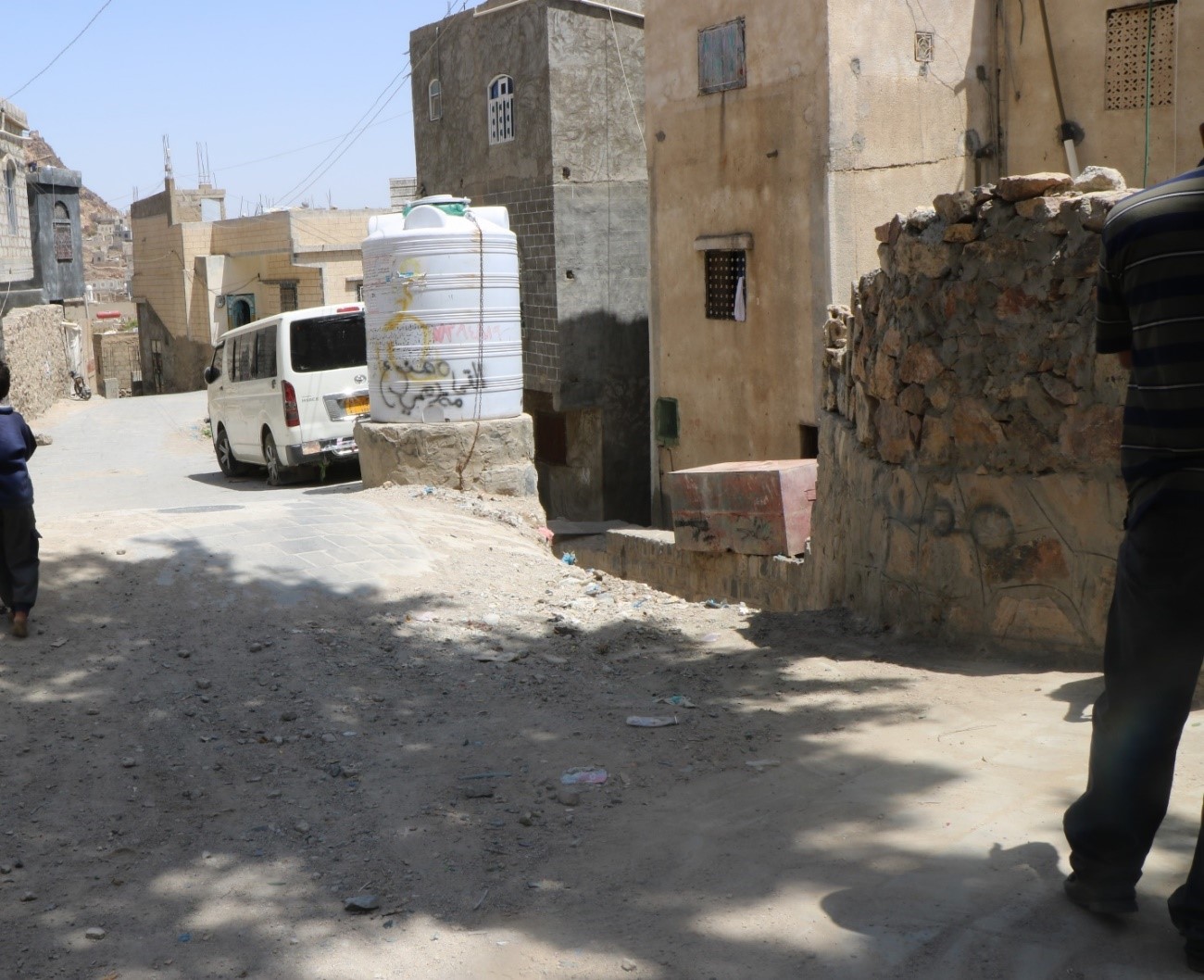More than six years of relentless conflict in Yemen have seriously damaged the country’s aging water and sanitation system infrastructure. An estimated 15.4 million Yemeni people, including over 3.4 million women and 8.4 million children, require support to meet their basic water, hygiene and sanitation (WASH) needs. More than 50% of them are in acute need. In addition to the significant population displacement and increasing poverty, families are forced to resort to negative coping mechanisms, such as open defecation. In the past few years, deadly waterborne diseases like cholera claimed hundreds of lives.
Sewage water is known as ‘the black water’ in a sanitation context; it contains bacteria, parasites and viruses and exposes people to killer diseases such as cholera, dengue, malaria and diphtheria. Sanitation and wastewater treatment services in Yemen are overwhelmed and disrupted. WASH remains a major public health risk and driver of disease and malnutrition. Only 53 percent of the population in Yemen have access to improved sanitation. Moreover, people in rural areas are less likely to use improved sanitation facilities – 56% compared to 79% in urban zones.





